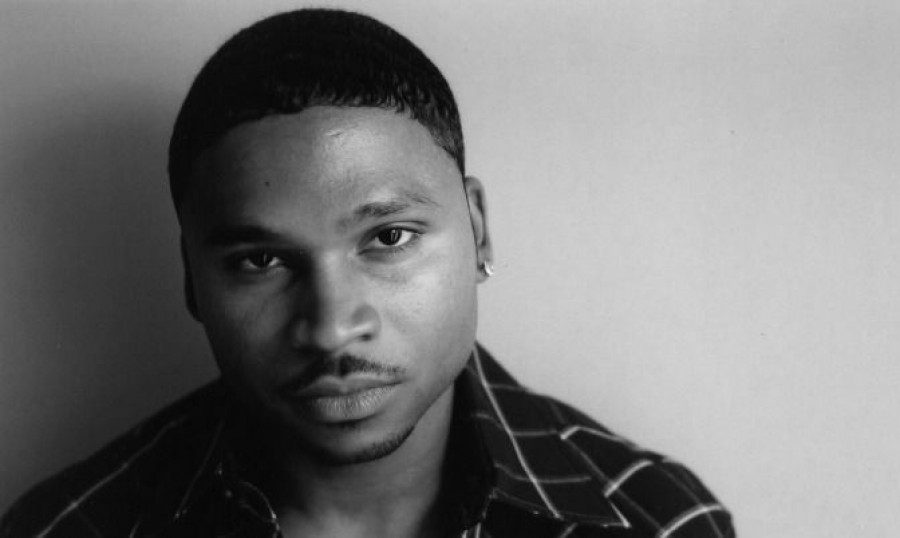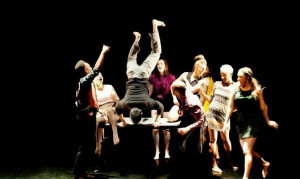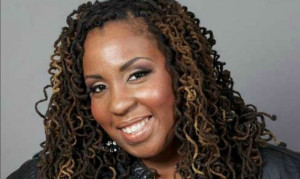We had the pleasure of speaking with him last week about the project, his aspirations, co-writing for the first time, and what lies ahead in his future.
Let’s jump right into Twisted. what was the inspiration for writing this piece?
I was actually asked to jump on board as a co-writer. Charlotte and Iris are dramaturges, they were writing something based on Dickens', and they asked me to be a part of it because they wanted to make it more updated and relevant.
They thought of me writing from the perspective of Oliver, so that is how it initially started. But I had never really co-written with anyone, so I wasn’t really down with the idea of not knowing what would happen. But I guess it was more of me not really being able to trust that if I’m working with someone, that they are going to respect my version of things, or how I decide to tell the story.
But what happened was I just kept getting all these signs that pointed me in the direction of being involved in the project. Once I decided that I wanted to be involved in the project, because I really respect Iris, and I have a great relationship with Charlotte’s dad, I had to think of how does this pertain to me. Like what is it that I want to say because everything I have written was about a message I had to speak on.
So how do I make this personal to me, and how do I make this something that when the going gets hard, I’m not going to give up on the play.
So sitting on that, I found a bunch of different angles that touched me. At that point, a friend of mine was adopting a child (and he’s still in the process) and explained to me that many Black Canadian kids are in the system, but not a lot of Black parents are adopting these kids.
So there are a lot of Black Canadian children being adopted by families that aren’t Black, and that started my mind clicking on who I wanted Oliver to be. I wanted him to be this Black Canadian kid that has been in the system, trying to find himself, and being raised by all these other people that aren’t like him. So I figured, I can get behind this. And I know it was important to my friend; the fact that not a lot of Black Canadian people think about this doesn’t cross their mind, the whole idea of adopting and raising kids that aren't yours. It’s something about our culture, you know, that we will raise them as a community, but in terms of going out to raise somebody else’s child. Nah.
The second part is that I wanted to touch on the movement of him being a biracial child. there is always stuff written about absentee Black Canadian fathers, but what’s interesting to me growing up in Scarborough, and witnessing biracial children, also having biracial children; no one ever speaks about the mother who decides to have a biracial child. Does she understand what those responsibilities are, or what impact it has on the child? That was another connection.
These are things that I can rally behind, in terms of… nobody else is saying this on stage, nobody is holding any weight to this. So those were the things that really got so deep into me, so I will fight for this play because I think the messages need to be put out there.
So when an audience member leaves that theatre, what emotions do you want them to leave with?
I put stuff out, and I feel that you’re going to leave with what you come into the theatre with. That's what I believe. I write and put enough emotional stuff into it that if you are a kid that felt lost in a disconnected society, then you’re probably going to attach yourself to Oliver’s struggle with not fitting in.
If you were biracial then you will relate to his battle of ‘ who am I’.
If you grew up in a very complex family but still realized that there was love and support that nurtured you, you probably connect with his realization that love itself can help you get through so much, and you might not necessarily be the most well rounded in terms of ‘I got an idea of who I am’, but enough to make me be strong in who I am, to find the answers to those questions.
So I think it’s about the themes I put in there and I leave it to the audience to really allow themselves to connect to whatever it is that speaks to them.
How do you compare the Obsidian experience compared with Factory Theatre?
First off I have to say I am completely blessed to have gotten to work with these men, and to have them gravitate towards my work. I wanted to be part of who they are as artistic people.
The difference is really that with Obsidian there was a comfort, in that Philip knew who I was as a writer, he knew how it was to relate to me when it comes to my work, so there was a level of trust that was there. If I got in a room with Philip I know he’s not going to overact if I say no, you’re not changing that, you know what I mean. Or if he comes up with an idea, I trust that he believes in what my vision is that whatever he comes up with is still going to encompass my original story. That’s through years of growing with each other.
So I think initially the major thing was, I’m kind of protective of my voice, and how it is that I write. I didn’t want to be in a situation where I would have to backtrack my style or not use the language the way I want to use it. So that’s just about trusting the people that you’re with, and I knew that Iris was always trying to have a position so she could be involved in my work, so obviously she respected what I do.
And the same thing with Charlotte. The first time that we got together and we just started talking about stuff, I pretty much just laid it out there; “I don't know what’s going to go on, I have never done this with someone else”. And when I read the parts she came up with, I’m like, “yo this girl is sick”. I could just hear her stuff being said, and my stuff being said, and it was just this combination of voices that synchronized.
You have done two major theatre houses now in Toronto. What’s your dream as far as Canadian Theatre is concerned? I know some people want their productions on a Mirvish stage, or have their work in Stratford. What’s your thing?
(laughs) I don't even operate on those terms, I operate on the simple term of; I don’t know what the hell it’s going to take for someone outside of Toronto to be brave enough and do my stuff. For me, that’s the hangup. I know what the struggle here is, and the creation of my work is always that the most ears get to hear it and understand our experience. That’s what I’m concerned about. Getting people to hear our experience, understand that a kid growing up can get a hold of my book and use my words as an audition piece because he relates to it.
That happening in Toronto is great. But I’m like, why isn’t it happening elsewhere? Why can’t a Black Canadian kid in Montreal growing up, get a hold of my book, or be able to sit down and see my work presented in front of him and say oh, these are my possibilities. This is what my expression is.
My goal is to somehow break out of just being a voice in Toronto and become a more national voice, which makes it a more national conversation about the topics that I write about. Even if it’s a small 50 seat theatre, though I would love it to be in a bigger house, which means more people actually get to see it, but that it’s spreading and young kids get access to it. The fact that our lead actor Ngabo Nabea is still in theatre school, but gets an opportunity to be in a play and be a lead, that's big to me, because that wasn’t my option when I was growing up. So that’s beautiful to me.
Are you interested in film?
Yeah, you know film has always been my place where I can hide and do my acting, and I have been thinking more about how I can use it to express what I do in theatre, in terms of the style. I always did that separation before, where I was comfortable having that be the place where I get to act and do what not. It definitely has been something I have been thinking more of.
Do you regret any choices you have made as an artist?
I can’t say I have, no matter what the outcome ended up. If I made all the choices I wanted to make, the difficult ones, then how can I be upset. All the choices I have made have been difficult choices, but it was always stuff I believed in, so you hope the message gets picked up along the way, and the right people hear and realize where you’re coming from with your creation.
It seems that there is this disconnect with the Black Canadian community with what happens in theatre. Like we have this thing where if it’s an established theatre house or established theatre scene, then it’s not for us. So a lot of the stuff that gets done that is independent is something that they would gravitate to, but my hope is that we can break that down, and say no, we belong in the Factory Theatre, we belong in the Theatre Passe Muraille. So that message gets out and more Black Canadian people come out to these spots, especially when our things are being done, and bring your youth out to get them motivated.
What’s next? After you have Twisted everybody’s head.
I need to sit down and let the next story come to me, there are so many things in my head. I really need to let that next story come to me. I will get behind this and see how far we can push this, and allow myself to take what comes. I can’t get too focused on one thing so that if an opportunity comes that is challenging, I will take that challenge, and keep myself open and keep creating and believing in the work. It’s crazy because you think that if you do that, it’s easy, but you always have to remind yourself to believe in what you’re doing.
How can people connect with you?
You can get me on Twitter @bruised_berry.
There must be something behind that name.
(laughs) Yeah it comes from when I was doing Shakespeare’s Niggas, there is a line in the play that says “the blacker the berry the deeper the bruise”, so I flipped “the sweeter the juice” to mean that sometimes it’s not because it’s sweet, it’s because it’s been bruised. When a fruit falls the dark part is normally the bruised part. Behind the sweetness, there is also pain, so I acknowledge that my history is potentially sweet, but I have a history of pain that I acknowledge, that’s in the formation of who I am.
Twisted runs Jan 31 - Feb 22, 2015 at the Factory Theatre.







